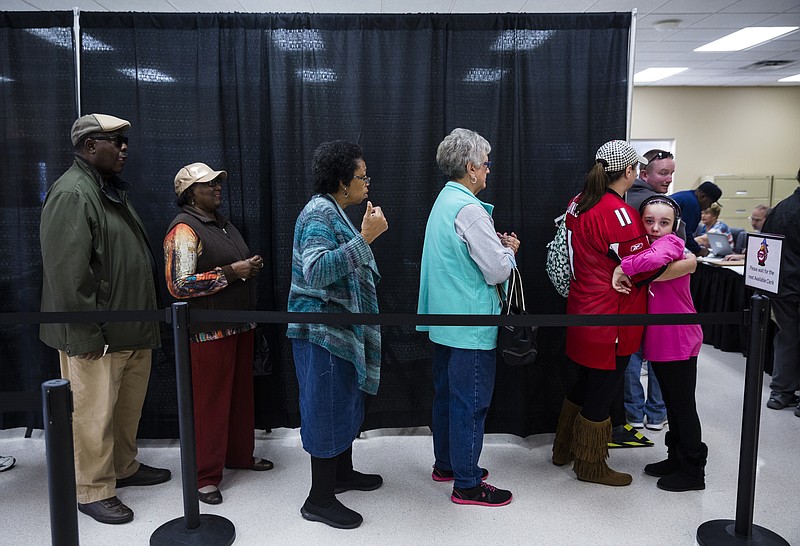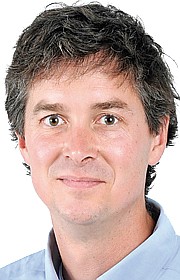For many in Chattanooga, it hurts in the worst place.
"Hopelessness," said Michael Gilliland. "It's the strongest feeling in Chattanooga."
Especially among communities of poverty and color, the feeling is that all things - from horizon to horizon - are outside their control. Condition of schools. The way they're policed. Jobs and where to find them. Homes and how to keep them. It's as if the levers of society are well hidden, and pushed and pulled by other people.
Gilliland, 35, would know. He's board chairman for Chattanooga Organized for Action, a nonprofit working alongside grassroots progressive movements in the city.
"The feeling in town is that these decisions are made by other people. The decisions are already made, the future is set, and it doesn't matter what we do. At the end of the day, the result will be the same. It's not apathy. They really feel like they can't change it. The train is moving and they have no control over it," he said.
Hopelessness, to varying degrees, has become a national condition. For so long, we've been told the antidote - the way to gain control - is through voting. We are romanced into thinking the ballot is the great savior of America. We project all our civic imagination onto Election Day.
After all, it is the one choice that's really promoted to us. At no point do the modern estates of power - schools, churches, media, government, Wall Street - discuss and instruct us on the wide range of civic action. Sit-ins. Teach-ins. Marches. Protests. Boycotts. And on and on.
We are told to vote and only vote. It is a gaunt democracy.
So when you and I leave the voting booth Tuesday - with its factoryesque lines and cold, impersonal ballot - we will walk out with a blend of resignation, sadness and unabated anger. A new CBS/New York Times poll shows eight of 10 Americans are repulsed by this election.
Whatever happens Tuesday won't change that.
It is because we ask too much of Tuesday.
"I believe MLK had more of an impact in this world by his 'I Have a Dream' speech or by rotting in the Birmingham jail [than] by anything he ever did in an election booth," said Gilliland.
Most of us will not commit civil disobedience, or speak on the Washington lawn to millions, yet understanding the problem before us is key.
First, we must ascribe to voting the power it's due. No more, no less. If democracy is a house, voting is the 10-penny nails. It takes far more to create democracy than voting.
Second, if democracy is roughly defined as people having power, autonomy and agency to make choices upon their own lives, then we must clearly recognize the lack of democracy in America.
"We have to refuse the definition of politics given to us. Politics has to be more than this," Gilliland said. "If it is more than this, what is it?"
Third, to find the answer, we must put on what Dr. Cornel West called the "democratic armor" that uses truth, community and imagination to ask the largest questions:
How can we have control over our own lives?
How can we re-imagine a society that is more just and equitable?
"It has enormous power if we act on it," Gilliland said. "These types of questions have led to all the great social movements in history."
All social change originates with grassroots movements, which means there is hope within the hopelessness. If we were to take the repulsion of eight in 10 Americans and redirect it, then such emotion, when harnessed through social movements, can be transformative.
"That's the silver lining," Gilliland said. "We can begin to see that things aren't going to continue this way. It's unstable, untenable, unsustainable. We're not going to have the same world in 10 years, which opens up a realm of possibility for us to act and influence. For those of us who believe in democracy, we have infinite responsibility."
David Cook writes a weekly column and can be reached at dcook@timesfreepress.com or 423-757-6329. Follow him on Facebook at DavidCookTFP.

